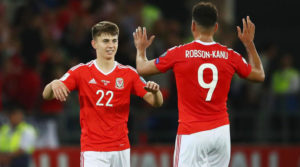Speaking after the Euro 2016 qualifying draw in Nice, Roy Hodgson has questioned Uefa’s decision to rearrange their scheduling of the fixtures.
Whilst the biggest difference to the Finals, which will be held in France, concerns the increase of teams from 16 to 24, there has also been a radical shake-up in the scheduling after Michel Platini introduced new six-day international windows, to run from Thursday to Tuesday, which will involve games taking place every night during this period.
Platini, the Uefa president, admits this has been the ‘week of football’ was created for political reasons. The former France midfielder, who helped his side win the tournament back in 1984, believes this new programme will thrust the competition back into the limelight, in an era when much focus is aimed at club football.
But Hodgson believes the new system will likely aid club sides, and could be problematic for him and his international counterparts. The England coach, who will be confident of qualifying for the Finals after being drawn in Group E with Switzerland, Slovenia, Estonia, Lithuania and San Marino, there is now even less preparation time.
“It won’t affect the clubs, but it will affect the national teams,” he said. “Now we could have just six days if you’re playing Thursday and Sunday. I don’t understand how that can be championed as something to help the national teams: if you want to help the national teams, have more time for preparation. As far as the clubs are concerned, they’ll be rubbing their hands together because they will get the players back quicker.”
If, for example, a double-header starts with a Thursday evening fixture, a number of players may have been in action on the Sunday, meaning it could be the Tuesday before they meet their international colleagues. Whilst in this instance England only have one match on a Thursday, there are plenty of national squads which have players scattered all over the continent, which would certainly make their job more difficult.
Elsewhere in the draw, Scotland and Republic of Ireland have been pitched together in a difficult Group D which also includes Germany, Poland, Georgia and the newly-formed Gibraltar. Wales are in Group B with Belgium, Bosnia-Herzegovina, Israel, Cyprus and Andorra, whilst Northern Ireland, who last appeared at a major tournament in 1986, are Group F, along with Greece, Faroe Islands, Finland, Romania and Hungary.
France have also been included in the draw in Group I with Portugal, Albania, Armenia, Serbia and Denmark, but they automatically qualify as hosts so their fixtures will be treated as friendlies with the results not being rewarded with points. Holders Spain are in Group C with Luxembourg, Macedonia, Belarus, Slovakia and Ukraine.
Italy, beaten finalists in Poland and Ukraine in 2012, are in Group H with Malta, Azerbaijan, Bulgaria, Norway and Croatia, whilst 1988 winners Holland are in Group A along with Kazakhstan, Iceland, Latvia, Turkey, and Czech Republic. Finally, Group G consists of Russia, Liechtenstein, Moldova, Montenegro, Austria and Sweden.
Each group winner and runner-up, together with the best third-placed team, qualify directly to the Finals along with Les Bleus. The remaining four places will be determined after the other eight third-placed teams contest two-legged playoffs. In the Finals, qualifiers will be split into six groups of four with each winner and runner-up advancing to the last 16 knockout stage, along with the four best third-placed teams.

